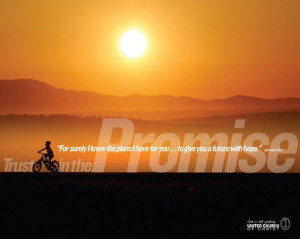
Every other day I run two miles at five o’clock in the morning. I have to do that because I need to be in shape for the Army Physical Fitness Test and I want to do it because I have always enjoyed exercising. Also I believe God calls us to take care of our bodies. Every muscle, bone, joint and organ is a beloved creature of God just as the whole body is. In recent months we have had multiple occasions in the church were staying active came up: Several people share about their experiences on their early morning walks. We have learned that getting your heart pumping can help prevent Alzheimer’s disease. Strong legs can prevent falls. Being in good physical shape helps you withstand the stresses of surgery better and makes recovery faster and easier. Exercise is a spiritual practice. It is taking care of God’s creation: Yourself!
Here is how Genesis 1:28-31 speaks to this issue:
“God blessed them, and God said to them, ‘Be fruitful and multiply, and fill the earth and subdue it; and have dominion over the fish of the sea and over the birds of the air and over every living thing that moves upon the earth.’ God said, ‘See, I have given you every plant yielding seed that is upon the face of all the earth, and every tree with seed in its fruit; you shall have them for food. And to every beast of the earth, and to every bird of the air, and to everything that creeps on the earth, everything that has the breath of life, I have given every green plant for food.’ And it was so. God saw everything that he had made, and indeed, it was very good. And there was evening and there was morning, the sixth day.”
Martha Grace Reese in her 2008 book “Unbinding Your heart” interprets this as a call to combine physical and spiritual exercise:
“[T]hese powerful stories show God’s joy in what God has brought into being. God is still creating. We can join God in that joy and care-taking. Today, take a ‘Prayer Walk.’ Choose a place – whether in nature, a shopping mall, your office, the library, the grimy bus station downtown, your own neighborhood or someone else’s. Walk through it slowly. Try to see it with God’s eyes. Feel God’s love for the place, the growing things, the people. As you walk, bless the houses, or rooms or paths. Bless the people who will go in and out of them, their families. Pray for God’s healing, guidance, protection. Pray as you feel the Spirit moving you to pray for anyone you see. What did you notice?” (page 128)
Maybe we ought to start a walking group at the church. Maybe we need to walk around this neighborhood and bless all who live in it. Maybe we need to stay in shape together, because after all: It is easier to get moving when you do not have to motivate yourself alone.






